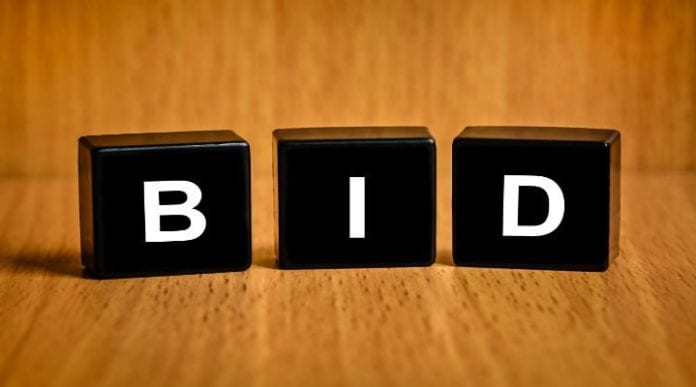Bid total passes $170 million
The Federal Communications Commission has doubled the number of daily bidding rounds in the ongoing auction of 2.5 GHz overlay licenses, moving today from two rounds to four.
The bidding total continues to move up slowly, and as of Round 15, was at $170.9 million. Bids totaled $103 million on the first day of bidding and have yet to double their first-day figure.
There are likely a few reasons for this auction’s slow pace and low total: These are overlay licenses that are encumbered in metro areas, so the actual spectrum availability is primarily in rural locations; and because T-Mobile US has amassed significant holdings and/or access arrangements to 2.5 GHz, it is seen as the national carrier with the most interest in the band, while Verizon and AT&T concentrated most of their midband efforts (and money) on last year’s record-breaking $81 billion C-Band auction. (A recap of the two recent midband spectrum auctions is here.)
The number of licenses under contention continues to get whittled down: 1,913 licenses had more than one bidder vying for them during Round 15, compared to 1,997 licenses at the close of Round 9. Only 161 licenses had no bids.
Since this is an auction of county-level overlay licenses with limited utility in the major metro areas, there is a different dynamic in play than the typical auction flow. Usually, densely populated urban areas are the primary focus and get bid up rapidly until bidders drop out and metro prices settle, with bidding then shifting to mid-sized markets and finally to rural ones.
According to round analysis by Sasha Javid, COO of BitPath and former chief data officer and legal advisor on the FCC’s incentive auction task force, the most in-demand licenses as of Round 15 were Grant County in Wisconsin; Cibola County in New Mexico; and Atchison County in Missouri, with aggregate demand of 12 bids for the three licenses in each of those locations. Another six counties had 11 bids going for their trios of licenses. The largest of those counties, population-wise, was Reno, Nevada. Javid’s post-round analysis of the auction is available on his blog.
There are approximately 8,000 county-level licenses up for grabs, with the best actual spectrum utility in rural areas because of encumbrances in the spectrum in urban areas. The 2.5 GHz (2.496-2.690 GHz) spectrum available in this auction is being sold as overlay licenses, as a result of FCC action in the past few years to reform the use of the band, which used to be known as the Educational Broadband Service (EBS) band. The former Sprint, in particular, had built up extensive leasing arrangements across the country with educational institutions who held EBS licenses. T-Mobile US acquired Sprint’s 2.5 GHz spectrum when it bought the rival carrier and has relied heavily on that midband spectrum deployment for its 5G services. This auction gives the operator the chance to buy still more 2.5 GHz spectrum as it continues to emphasize its pursuit of customers in smaller and rural areas.
There are three channels available, according to the FCC band plan: Channel 1, which is 49.5 megahertz of spectrum; Channel 2 is adjacent to Channel 1 and consists of 50.5 megahertz of spectrum. There is also a smaller channel, Channel 3, which consists of 17.5 megahertz and is not adjacent to either of the other two channels. Channels 1 and 2 seem to be receiving more interest than Channel 3 — for instance, in Cache County, UT, there were six bids each for Channels 1 and 2 but only three bids for Channel 3.
The auction will use an ascending clock format auction. The FCC has put together a new mapping tool so that would-be bidders can find out whether there are unassigned 2.5 GHz licenses in areas they are considering.
There is a field of 82 qualified bidders, including the three national wireless network operators, US Cellular and Dish Wireless, bidding under the name Carbonate Wireless.
There are also a significant number of small and medium-sized telecom network operators set to participate in the auction, including Carolina West Wireless, Cellular South Wireless, Copper Valley Wireless, Granite Wireless, Nex-Tech Wireless, NSight, Puerto Rico Telephone Company, Redzone Wireless and Union Telephone Company.
Correction: This story has been updated to reflect aggregate demand/number of bids versus number of bidders. Bidders may bid for more than one of the three available license units in each county.

